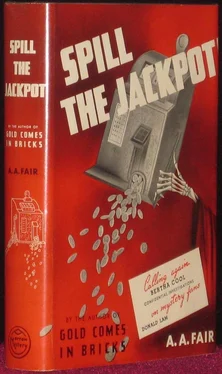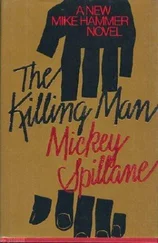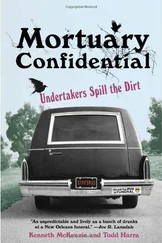I said, “I get tired of being a human punching-bag.”
“And so you quit your job, hire a boxing instructor, and start right in with road work, massages, boxing, and regular fight training?”
“That’s right.”
“When you go after anything, you don’t use any halfway methods, do you?”
“No.”
“Some things, anyhow,” she said, and turned away.
Louie said, “Now, buddy, after breakfast, you don’t do nothing. See? You just sit back for an hour and let your food digest. You read the paper, and try to keep from moving. Don’t do anything that will use up energy.”
Nothing in my life ever felt quite so good as that hour of complete relaxation which followed. Then I announced that I had work to do. Louie wanted me to take some breathing exercises, and some “skull practice,” but I insisted I had to go to town.
Helen said we needed some groceries, and handed me a list. Louie volunteered to go along and buy the groceries. Helen said she’d stay in the cabin and straighten things up.
Louie talked about her all the way into Reno. “A wonderful girl,” he said. “She’s got what it takes. She’s championship stuff. Sock her one on the button, and her knees might be buckling, but you’d never know it.”
I eased the car into a parking-space and told Louie to be back in half an hour.
“I’ll be here,” he promised. “You got that grocery list?”
I handed him the grocery list and twenty dollars. “Expense money,” I said. “When it’s gone, tell me and I’ll give you some more.”
His eyes held that same devotion you see in the eyes of a big dog looking up at his master. “Okay, buddy,” he said, and pushed the money down into his pocket.
I went into one of the hotels, got a list of numbers, closeted myself in the telephone booth, and went to work. I called retail-grocer associations, credit bureaus, the dairies, and even the ice company. I was, I explained, from the Preferential Credit Bureau of San Francisco. I was trying to get some information on a Mrs. Elva Jannix. I knew they wouldn’t have any credit applications, but I’d like very much to have them check their deliveries during the next few days, and if they got any information to save it until I called again.
That’s a peculiar thing. No matter what kind of an alibi you use, you can’t get information out of a business house unless you pose as a credit man, and then they’ll turn everything inside out. They almost never ask to see any credentials. Simply tell them you’re handling a credit matter, and the world is yours.
I made the rounds of the banks, told /hem I was trying to locate a stolen check, asked them if they’d had any business dealings with a Mrs. Jannix, either Mrs. Sidney Jannix, or Mrs. Elva Jannix.
Most of them fell for it. One of them didn’t. The manager wanted to know more about me. Somehow, the way he went at it, I had an idea Mrs. Jannix might be a client of that bank. A man can tell you he hasn’t the information you want without violating any ethics, but if he happens to have the information you’re after, he gets a little cagey about giving it out.
I went back to the car. It had been an hour and ten minutes. There was no sign of Louie Hazen beyond a pasteboard carton filled with canned stuff, and two heavy brown-paper shopping-bags loaded with various staples.
I sat and waited for fifteen minutes. The sun crawled over the roofs of the store buildings, and sent warm rays glancing down into the streets. I felt drowsy. My muscles and nerves were all relaxed. I didn’t give a damn for Bertha Cool or the detective agency or anything that concerned it. I closed my eyes to rest them against the glare of the sunlight — and woke up with a jerk from a sleep so sound that it took me a few seconds to realize where I was and how I had got there.
I looked at my watch.
It had been more than two hours since I’d left Louie.
I put a note on the steering-wheel, “Back in ten minutes. Don’t leave,” and went back to make some more telephone calls, plugging up a few loopholes I might have missed.
I came back and the note was still on the steering-wheel. There was no sign of Louie. I started the car and drove back out to the cabin. Helen had been sweeping. A handkerchief was tied around her hair for a dust cap. “Hello,” she said when I’d brought the groceries in. “What did you do with Louie?”
“I don’t know.”
“What happened?”
“He went out to get the groceries. I told him to wait in the car when he came back, and to be sure and be there in half an hour. He wasn’t there. I waited over an hour longer, and then came out here.”
She took off her dust cap, put her broom in the corner, went into the bathroom, washed her hands, and when she came out, was rubbing some fragrant lotion into the skin.
She said, “This might be a good time to talk.”
“About what?”
“Lots of things.”
I sat down beside her on the little settee. She got up after a moment and moved over to a chair facing me. “I want to look at you,” she explained. “If you’re going to lie to me, I want to know it.”
“That doesn’t sound very encouraging.”
She said, “I like you.”
“Thanks.”
“I liked you from the first time I saw you.”
“Leading up to something?” I asked.
“Yes.”
“Go ahead then.”
She said, “The orthodox technique for a nice young thing is to be very demure and, if you take an interest in her, lead you along very, very gently. I don’t do things that way. When I like someone, I go for them in a big way. When I don’t like ’em, I just don’t like ’em, and that’s all there is to it.”
I nodded.
“That first night out on the desert,” she said, “was about the happiest night I ever spent in my life. The second night was almost as good.”
“And now?” I asked.
“Now, I don’t like it.”
“Why?”
“I thought you were strong for me.”
“I am.”
“Phooey!” she said, with a little grimace. Then her eyes came up to mine. “It isn’t because of what I was doing — that slot-machine racket — that you cooled off toward me?”
“I didn’t cool off toward you. I like you.”
“Yeah, I know.”
She was silent for a few seconds, then she said, “Anyhow, being with Pug and working that machine racket, and having batted around on my own has made me feel that I’m on one side of the fence and the cops are on the other. There’s no particular reason I should feel that way except I’ve had a lot of shakedowns in my time, and particularly on the slot-machine racket. Once or twice, Pug would get caught. The slot-machine man would pretend he was going to make a complaint and prosecute. We always knew it was a bluff, but the cops would hold us on their own and shake us down for everything they could get before they’d turn us loose. Well, I got to looking at cops as being — well, just cops.”
I didn’t say anything.
She averted her eyes once more, studied her shoe tip. “All right, Donald,” she blurted at length, “if you think I know something about Pug’s murder, and if you thought you could make a play for me because I was strong for you, pretend that you’d quit the detective business, and get me to tell you what I knew that way — well, Donald,” she said, looking at me suddenly with the steady stare of slate-gray eyes, “I think I really could kill you if you’re taking me for that kind of a ride.”
I said, “I wouldn’t blame you.”
She kept studying me. “Going to say anything more?” I smiled and shook my head.
She got to her feet abruptly. “Damn you, I wish I knew what it was you do to me, but I’m just telling you — I still say you’re working on that case. Remember what I told you.”
Читать дальше












